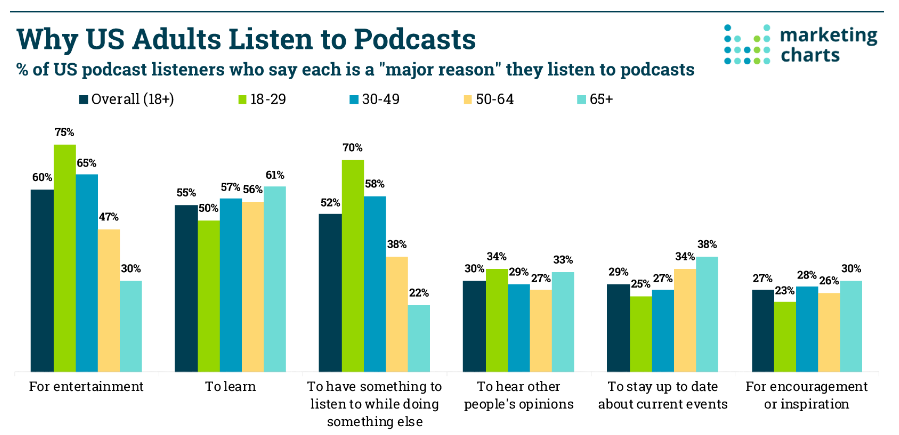Sales for Nerds: Making BD Feel Less Icky, with Reuben Swartz
For many consultants and solo business professionals, sales can feel uncomfortable. But sales is necessary for even one-person businesses to survive, let alone grow. Reuben Swartz is solving this problem with his podcast, “Sales for Nerds” and his product, Mimiran—the fun, simple anti-CRM for solo consultants.
Publishing a monthly podcast since 2016 as a central part of his marketing strategy, Reuben embodies what it means to be committed for the long-haul. After eclipsing the 100 episode mark, Reuben shared his experience podcasting from how the idea came about to what the future holds for Sales for Nerds. Listen here and subscribe to the show on Apple, Spotify, or YouTube:
Helping Solo Consultants Organize Sales Conversations
When it comes to different ways to organize sales conversations, Reuben has seen it all.
“They maybe have a spreadsheet that's overflowing, or they have some enterprise CRM that some other consultant told them they should use that they don't really like because it's too complicated,” said Reuben, illustrating the range of ways that solo consultants manage their sales pipeline.
Based on having many conversations with solo consultants (both on and off of his podcast), Reuben believes most CRMs are built for larger sales teams, not individuals. “Typically a CRM is for a VP of sales to keep track of a sales team. And that's great if you're a VP of sales with a sales team, but it's kind of like trying to take the space shuttle to the grocery store.”
On top of that, business development looks much different for solo consultants vs larger sales teams. Most solo consultants rely on referrals from existing contacts. But unfortunately, few have an organized referral strategy in place.
“They usually just end up kind of hoping a referral comes in. And I know all about that because I've been in that world and I've played that role for years. And what I realized over time is it doesn't have to be that way,” Reuben said. “You don't even like selling. But you need some way to make sure you're organized and you're following up and you're having conversations with the right people.”
Turning The Podcast From Idea to Reality
Reuben Swartz initially thought of writing a book, much like many professionals eager to share their expertise. Instead, Swartz pivoted to starting the "Sales for Nerds" podcast after going on a business retreat with some friends who were also small business owners.
“We would go skiing during the day. And then in the evening we would go over each other's business plans,” said Reuben. “I remember we were talking about how if we were younger people, we would just film this and put it on YouTube.”
Soon thereafter, Reuben remembers posing the question to his friends, “Why don't I have a podcast where I bring a bottle of wine to someone's office, and then we have the conversation and it'll be a great time, right?”
The idea was met with optimism and encouragement from his entrepreneurial friends, so he resolved to launch a podcast. However, Reuben soon fell victim to his own perfectionism. “My buddies thought this was a great idea. So what did I do? I sat on it for six months.”
“And so finally… I'm like, this is ridiculous. I'm never going to do it if I don't invite someone to the podcast.” Reuben really wanted to have Jason Cohen, the founder of WP Engine, as his first guest.
“[Jason’s] a serial entrepreneur who's got a very interesting way of thinking about things. That's very relatable to nerdy, techie people. So I sent him an email about how I was doing this podcast where I bring a bottle of wine and blah, blah, blah, blah. And here's why I would love to have you on as the first guest. And your history and this and that and blah, blah, blah…”
Suddenly, Reuben’s podcast idea went from six months of incubation to feeling very real. “Five minutes later, I get an email back. ‘You had me at wine. Here's a link to my calendar.’”
Finding The Minimum Audio Quality Threshold
Early on, Reuben admitted the audio quality of his podcast episodes wasn’t as good as it probably should have been. His early episodes were recorded in-person with a single microphone.
However, there’s a balance that needs to be struck for podcasters with limited resources. “There's some minimum threshold and some people might say those early episodes did not meet that threshold. I'm tuning out. But I think most people would say it's kind of crappy, but it's okay.”
Consider your target listeners. Why are they listening to podcast media in the first place? According to a December 2022 survey of 5,132 U.S. adults (18+) by Pew Research, the most common “major reason” for listening to podcasts is for entertainment, as cited by 60% of respondents. Some 55% say that learning is a major reason for listening, and 52% say a primary reason is to have something to listen to while they do something else.
When you consider more specifically people who listen to business podcasts, learning and professional development can have a measurable financial impact. Whether that’s improving their business, navigating their career, or finding new people to follow. While that shouldn’t diminish the importance of entertainment (you still need to hold attention), the quality of the content becomes much more important than the quality of the audio recording.
“I think there are podcasts where the sound is amazing, but nothing is being said,” recounts Reuben. “I almost think of a podcast as like, it's supposed to be a little pirate radio-ey, right? You're supposed to be listening in on a conversation. I don't necessarily need to feel like I'm in a BBC studio to listen to a podcast.”
Finding a minimum quality threshold will also keep your production costs low, which is favorable to scrappy marketing teams and solo business owners, like Reuben.
The Future of "Sales for Nerds"
Looking ahead, Swartz plans to continue the "Sales for Nerds" podcast with a monthly frequency, which, while not ideal for rapid audience growth, feels sustainable for him.
“If I could do it monthly, that's a cadence that I can sustain, even though it's probably not optimal for growing an audience,” said Reuben. “But [with a monthly cadence] I feel like I can do a better job curating the guests and enjoying the interviews.”
The podcast's impact on his business has been profound, nurturing a parasocial relationship with his audience and influencing their decision-making processes. However, Swartz believes he can do more with his library of podcast content. “I feel like I have this huge bank of wisdom from all these awesome people that I should be repurposing and maybe turning into a book,” said Reuben.
Swartz remains committed to authenticity, preferring organic conversations over highly produced, slickly edited shows. This philosophy has resonated with his listeners and shaped the podcast's value proposition.
Take the next step on your own podcasting journey
Ultimately, podcasts must deliver constant value to their listeners. Whether it's through meticulously chosen guests or well-structured content, the focus should remain on providing actionable insights every minute of the episode.
Swartz’s journey from consulting to podcasting, and his mission to offer genuine value, are testimonies to the power of authentic, intentional content. Of course, he started in 2016, underscoring that a podcast should be considered a part of a long-term marketing strategy.
If you’re ready to think big picture and build a podcast-centric marketing strategy, here are some useful resources:
Subscribe to my weekly newsletter
Subscribe to Podcasting in Professional Services
Subscribe to Breaking BizDev


